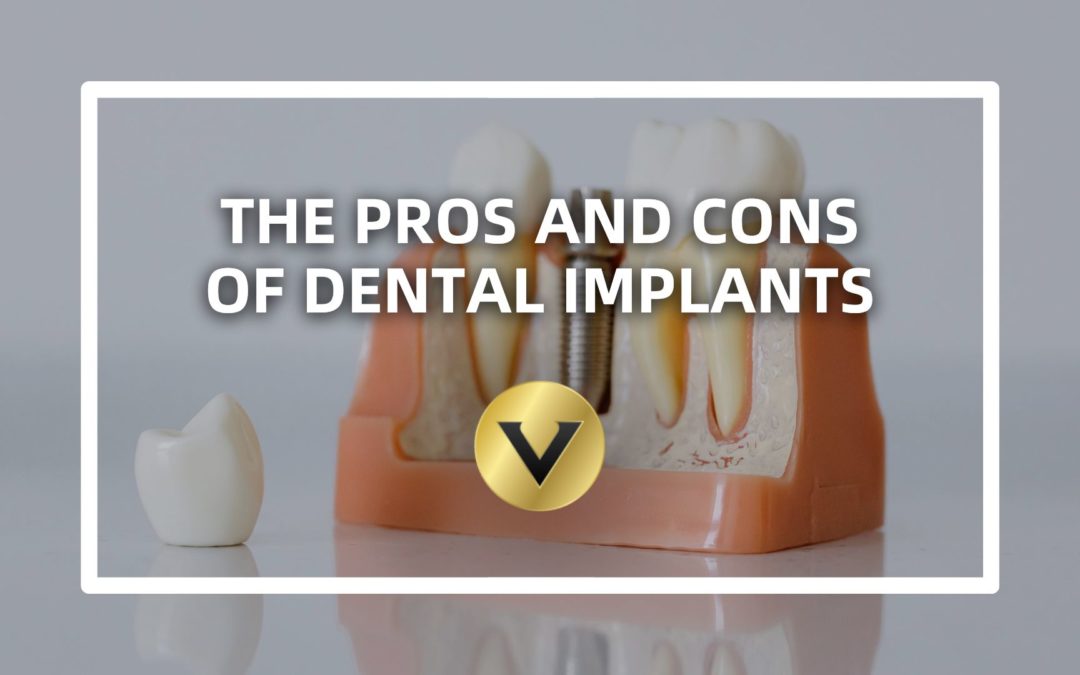For many adults, missing teeth can be an embarrassing problem that impacts both their confidence and oral health. Thankfully, restorative dentistry options like dental implants can help to restore an attractive and functional smile. However, dental implants are a major procedure, and it is important to understand all the benefits and drawbacks before determining if this restorative dentistry option is right for you. Here are some pros and cons of dental implants so you can make an informed decision about your oral health needs.
Advantages of Dental Implants
The benefits of dental implants often outweigh the potential drawbacks, making them a preferred choice for many patients. Reasons for this include:
Dental implants last a lifetime.
Dental implants are a permanent solution for missing teeth and offer numerous benefits. Unlike traditional dentures, dental implants are not removable, which allows for improved function and comfort. Dental implants can also improve the look and feel of your smile, giving it a more natural appearance and functionality. With proper care and maintenance, they can last a lifetime, providing a permanent solution to missing teeth and eliminating the need for further procedures. They also have a very high success rate, giving patients peace of mind in knowing that their investment is unlikely to go to waste.
Dental implants are easy to care for.
Dental implants have the advantage of being easy to care for. Just like your natural teeth, with dental implants, you should brush twice daily, floss at least once a day, and visit the dentist for a comprehensive oral evaluation and cleaning every six months. Even with all of the advances in oral care and implant technology, the necessary maintenance for dental implants is still fairly straightforward and simple to follow. With this consistent oral hygiene routine, you can keep your implants in great shape.
Dental implants prevent bone loss in the jaw.
As a long-term solution to tooth loss, dental implants not only provide a natural looking and feeling replacement but also help prevent bone loss in the jaw. This is particularly important because losing bone mass in your jaw can weaken your bite, cause other teeth to become compromised, and cause facial collapse, giving a prematurely-aged appearance. Dental implants are the only option for preserving bone mass in the jaw and thus should be used whenever possible. Additionally, without jawbone loss, the facial structure remains intact, avoiding the premature aging that can occur.
Disadvantages of Dental Implants
In some cases, you may choose not to get dental implants due to the potential drawbacks outweighing the benefits, particularly if you have medical conditions that make it hard to have surgery. The reasons you may decide against dental implants include:
Dental implants may require supplemental procedures.
One major consideration of dental implants is the need for supplemental procedures. Tooth extraction is a common procedure to allow for the placement of implants, but additional procedures such as bone grafting and sinus lifts may be necessary if you have been missing teeth for a long period of time. These subsequent procedures add to both the cost and the length of the dental implant process. Additionally, if a person has a medical condition that affects their ability to health properly or leaves them vulnerable to infection, it may not be worth the risk.
Dental implants are expensive.
One of the primary disadvantages of dental implants is their cost. They are often more expensive than dentures or bridges since they replace both the tooth above and below the gum line. Unfortunately, most dental insurance policies rarely cover all costs associated with dental implants, so many patients find themselves unable to afford them out of pocket. Although dentists may provide financing options for implants, many people still find them too costly for their budget.
Dental implants require surgery.
A noteworthy disadvantage to dental implants is that they require surgery, which can be a significant factor in deciding whether they are the right choice for someone. Surgery can be a greater risk if the patient has any health issues that increase the chances of complications or infection. Other associated risks include nerve damage, sinus problems, and the implant failing to take to the jawbone. The procedure is also not reversible and may require additional maintenance, restoration, or repair in the future.

